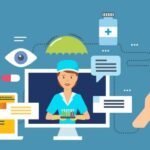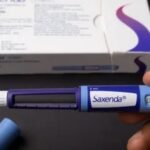Major Depressive Disorder (MDD) is both widespread and impactful. In 2021, an estimated 21 million U.S. adults, approximately 8.3% of the adult population, experienced at least one major depressive episode in the past year, according to the National Institute of Mental Health. Among those who experienced severe impairment, nearly 75% received some form of treatment.
With numerous treatment options available today, it’s challenging to distinguish between marketing hype and scientific reality. But how effective are these medications?
While some individuals experience significant relief, others may see only modest improvement or face unwanted side effects. This article explores the effectiveness of medication in treating MDD, examining how it fits within a broader treatment plan.
Understanding the Scientific Foundation
While understanding current treatment landscapes is crucial, the real question remains: What does the scientific data reveal about the effectiveness of antidepressants? Let’s examine the robust clinical evidence that forms the foundation of evidence-based depression treatment.
Selective Serotonin Reuptake Inhibitors remain first-line treatments for good reason. Drugs like sertraline, escitalopram, and fluoxetine consistently show strong efficacy profiles with manageable side effects for most people.
These medications work by preventing your brain from recycling serotonin too quickly, allowing more of this crucial neurotransmitter to remain available. Most commonly, the approach in Major Depressive Disorder treatment begins with SSRIs because they’re generally well-tolerated and have decades of safety data.
Clinical Trial Data Shows Clear Benefits
Modern research consistently demonstrates that medication for major depressive disorder significantly outperforms placebo treatments. Large-scale meta-analyses involving over 116,000 participants reveal response rates ranging from moderate to substantial across different drug classes. These studies reflect real patients facing genuine struggles with their mental health.
When researchers compare active medications to sugar pills, the differences become unmistakable. Clinical practice data support what controlled trials suggest. Patients receiving proper pharmaceutical intervention show measurable improvements in mood, sleep quality, and daily functioning compared to those receiving no treatment.
However, it’s worth noting that individual responses vary significantly. What works brilliantly for your neighbor might not be your answer, which is why personalized approaches are becoming increasingly important. The effectiveness of antidepressants depends heavily on matching the right medication to the right person at the right time.
Complete Guide to Medication Categories
With compelling data showing antidepressants are significantly more effective than a placebo, the next critical step is understanding which specific medications work best for different patients. Here’s your comprehensive guide to each antidepressant category and its proven effectiveness rates.
SNRIs Offer Dual Benefits
Serotonin-Norepinephrine Reuptake Inhibitors like venlafaxine and duloxetine target two neurotransmitter systems simultaneously. This dual action can be particularly helpful for people experiencing both mood and physical symptoms.
Research suggests SNRIs may work better for certain depression subtypes, especially when anxiety or chronic pain accompanies low mood. When it comes to Major Depressive Disorder treatment, SNRIs often produce faster results than SSRIs in specific patient populations.
Newer Options Expand Possibilities
Atypical antidepressants, including bupropion, mirtazapine, and trazodone, offer unique mechanisms for people who don’t respond to traditional options. Each has distinct advantages – bupropion typically doesn’t cause weight gain, while mirtazapine helps with sleep and appetite.
Revolutionary Breakthrough Treatments
While traditional antidepressants have helped millions, nearly 30% of patients don’t respond to conventional treatments. Fortunately, 2024 has brought groundbreaking therapeutic options that are revolutionizing how we treat even the most challenging cases of depression.
Ketamine Changes Everything
Esketamine (Spravato) represents a paradigm shift in depression treatment. Unlike traditional medications that take weeks to work, ketamine-based treatments can produce improvements within hours or days.
Only roughly one-third of patients will remit with the first treatment they try, making rapid-acting alternatives like ketamine increasingly valuable. This nasal spray medication works through completely different brain pathways than traditional antidepressants.
FDA approval has made this treatment accessible through certified clinics, though insurance coverage remains inconsistent across different plans. For clinicians and patients considering these options, the delivery context matters as much as the drug itself. If you are considering ketamine therapy, seek programmes that combine careful psychiatric assessment with close medical monitoring during administration to help improve outcomes.
Digital Therapeutics Emerge
Prescription digital therapeutics are gaining recognition as legitimate medical interventions. These aren’t just meditation apps – they’re FDA-regulated software programs designed to work alongside traditional medications.
Studies show that certain digital interventions can enhance mental health medication efficacy when used as prescribed adjuncts to pharmaceutical treatments.
Personalizing Your Treatment Approach
These breakthrough treatments represent just the beginning of a larger transformation in depression care. The future lies in matching the right treatment to the right patient from the start, entering the era of personalized medicine for mental health.
Genetic Testing Guides Decisions
Pharmacogenomic testing can reveal how your body processes different medications before you start taking them. Tests examining CYP2D6 and other genetic markers help predict which drugs you’re likely to respond to and which might cause problematic side effects.
This approach reduces the traditional trial-and-error process that frustrates both patients and providers. Among expanding options for Major Depressive Disorder treatment, these precision medicine tools play an increasingly important role.
AI Enhances Medication Selection
Machine learning algorithms analyze thousands of data points to predict treatment response. These systems consider your symptoms, medical history, genetic factors, and other variables to recommend optimal starting medications.
Early research suggests AI-guided treatment selection could significantly improve first-try success rates, potentially revolutionizing how psychiatrists choose initial therapies.
Addressing Treatment Resistance
Even with personalized approaches, approximately 15-20% of patients will still experience treatment-resistant depression. For these individuals, specialized strategies and advanced interventions become essential for achieving remission.
Advanced Combination Strategies
Treatment-resistant cases often benefit from combining multiple medications or adding augmentation agents like lithium or thyroid hormone. These approaches require careful monitoring but can produce remarkable results for people who haven’t responded to single-drug therapy.
Combination strategies represent sophisticated treatment for major depression that goes beyond simple monotherapy.
Neuromodulation Offers Hope
Transcranial magnetic stimulation (TMS) and electroconvulsive therapy (ECT) provide non-pharmaceutical options for severe cases. These treatments directly stimulate brain regions involved in mood regulation.
TMS requires no anesthesia and can be done in outpatient settings, making it increasingly popular for treatment-resistant situations.
Making Informed Treatment Decisions
With so many current and emerging treatment options available, making the right choice can feel overwhelming. These practical guidelines will empower you to work effectively with your healthcare provider and make informed decisions about your depression treatment.
Questions for Your Provider
Ask about genetic testing availability, expected timeline for improvement, and backup plans if initial treatments don’t work. Understanding your provider’s treatment philosophy helps ensure you’re both on the same page.
Don’t hesitate to discuss concerns about side effects, cost considerations, or previous medication experiences that might influence your choices.
Measuring Success
Depression improvement isn’t always obvious day-to-day. Standardized rating scales help track changes objectively, while functional improvements in work, relationships, and daily activities provide real-world success measures.
Set realistic expectations – most medications require 4-8 weeks to show full benefits, and some adjustments along the way are completely normal.
Your Path Forward
The evidence clearly shows that medication for major depressive disorder works for most people when properly prescribed and monitored. While finding your optimal treatment might take time, today’s expanded options – from traditional SSRIs to breakthrough ketamine therapy – offer more hope than ever before.
The key isn’t whether medication works, but finding which approach works best for your unique situation. Don’t let depression steal another day when effective treatments are within reach.
Your Questions Answered
Is medication more effective than therapy for depression?
If your depression is mild, there’s an excellent chance you’ll respond well to psychotherapy alone. Generally, as symptoms become more severe, it’s more important to consider medication earlier in treatment.
Does major depressive disorder need medication?
Most people with moderate or severe depression benefit from antidepressants, but not everybody does. You may respond to one antidepressant but not another, requiring multiple treatment attempts.
How long do antidepressants take to work?
Most people notice initial improvements within 2-4 weeks, with full benefits typically appearing by 6-8 weeks of consistent use at therapeutic doses.















